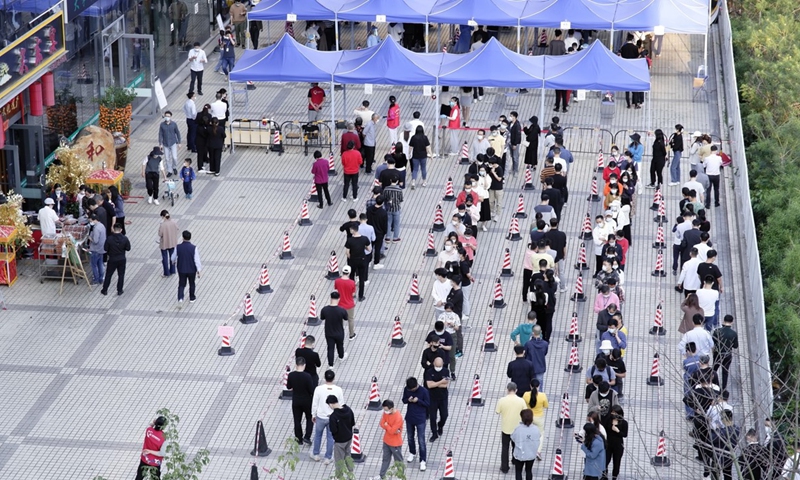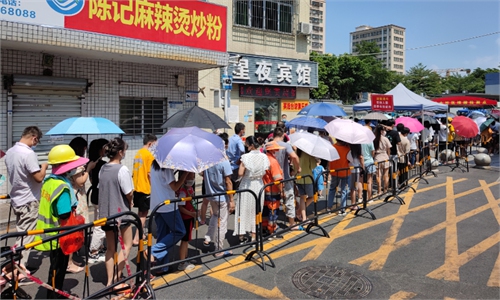Enterprises in Shenzhen asked to operate under close-loop management for 7 days as epidemic bites

Residents line up for free nucleic acid testing at the special Information Port in Shenzhen's Nanshan district, South China's Guangdong Province. Photo: IC
A number of enterprises in Shenzhen, South China's Guangdong Province, were asked to operate under close-loop management for seven days from Sunday, in accordance with local anti-epidemic measures as COVID-19 remerges in the city.
In order to strengthen prevention against the virus, the Industry and Information Technology Bureau of Shenzhen city issued a notice requiring Huawei, BYD, Foxconn and other top 100 industrial enterprises in the city to close their parks or factories for seven days from Sunday, and strictly control entry from other cities.
According to Shenzhen Municipal Health Commission, a total number of 21 new cases were reported in the city on Sunday.
A staff member from Foxconn in Shenzhen said on Monday that the plant is operating normally, and the employees are required to provide a 24-hour negative nucleic acid test result without visiting any medium and high risk areas.
According to online news outlet Yicai, ZTE said that its technology park in Shenzhen is currently following local epidemic prevention measures, with its employees having begun to work remotely except for essential production lines.
BYD was quoted as saying in an interview with Yicai that the new wave of epidemic has not had a significant impact on the company for the time being, and it is strengthening epidemic control in line with the city's requirements.
BYD is headquartered in Shenzhen, which is also the location of one of its eight major factories. Over the past two years, the company faced the problem of tight production due to surging vehicle sales.
In the first half of this year, BYD's cumulative vehicle sales reached 646,000 units, up 162 percent year-on-year, surpassing Tesla's 564,000 units delivered worldwide. In June, its sales grew 162.7 percent to reach 134,000 units, hitting a new monthly high.
Global Times

